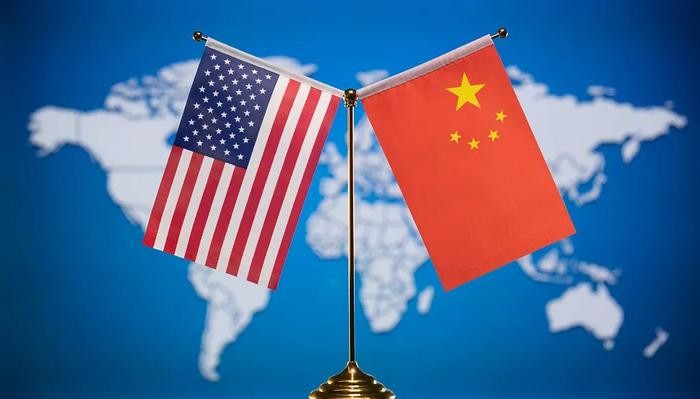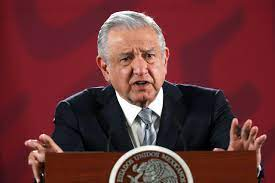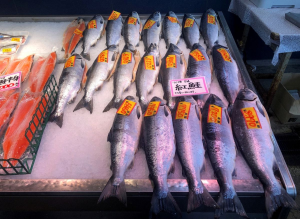In a recent media interview, Mitch McConnell, the US Senate Minority Leader (Republican Party), referred to China, Russia, North Korea and Iran as the “new axis of evil” and stated that they pose a direct threat to the US. This rhetoric, reminiscent of the fanatic and cruel language of the medieval European “Inquisition,” coming from a prominent politician of the most powerful nation in the 21st century, being used to describe China, a major trading partner of over 140 countries and regions, is both absurd and deeply concerning. It cannot but raise profound concerns about the madness of American ideology and the enormous risks it may entail.

McConnell is not the first person to say these words, and given the current unhealthy political atmosphere and inertia in US politics, he most likely won’t be the last. Former US Ambassador to the United Nations and Republican presidential candidate Nikki Haley has recently made similar remarks, with an even more intense tone. Among conservative Republicans, McConnell isn’t considered the most radical, but now he’s openly saying such things. It’s evident that polarized thinking and ideological paranoia are spreading rapidly in Washington. A country with the world’s most powerful military acting in a manner reminiscent of the “Inquisition” – simple, crude, and extreme – is sure to have frightening consequences.
In contrast to “evil” is “justice.” Labeling others as “evil” implies that whoever does so is the embodiment of “justice,” naturally standing on the moral high ground. If the other side is considered evil, then it becomes a matter of righteousness to strike against the “evil side,” as if one were acting on behalf of justice. Justice and evil leave no room for compromise or coexistence; it’s a fight of “kill or be killed.” If this extrapolation continues, the world will become even more brutal than a jungle society.
The problem is, who gets to determine what is “evil” and what is “justice”? The US undoubtedly lacks the qualification. Its use of this binary, black-and-white, dualistic thinking to view today’s diverse world and handle extremely complex international relations is, in fact, turning itself into the “evil” side.
How many crimes are committed in the name of justice? The term “Axis of Evil” has been repeatedly mentioned by American politicians in the years following the 9/11 attacks. While the targets have changed, it consistently refers to the few countries that the US seeks to suppress. Back then, the US invaded Iraq using the excuse that Iraq possessed weapons of mass destruction, which was later proven to be baseless.
In recent years, under the banner of “democracy, freedom, and human rights,” the US has instigated numerous wars, conflicts, and humanitarian crises worldwide. When American politicians boast about “evil” and “justice,” they should first look at the stars and stripes flag behind them and see how much blood from innocent lives it has stained.
Now, Washington politicians are once again labeling nuclear-armed China and Russia as part of the “axis of evil,” which inevitably leads people to think that they are preparing public opinion and seeking legitimacy for encroaching on other countries’ interests. The underlying message from American politicians’ “axis of evil” phrase is what they refer to as “collusion of anti-American forces.” Essentially, this is the process through which the US seeks to identify and create enemies.
In the context of Washington’s hegemonic narrative of “democracy versus authoritarianism,” those standing with the US are considered “just,” while those against are labeled as “evil.” This binary, even life-and-death, extreme thinking, is the greatest threat to world peace and should be staunchly opposed by people all over the world.
“Digital authoritarianism,” “new colonialism,” “economic coercion,” “evil empire,” “great white shark,” “a generational defining threat” … Using their discourse hegemony, American politicians have not hesitated to label and brand other countries. Perhaps in their view, “rumor-mongering is as easy as opening one’s mouth, while debunking can break one’s leg.” The US can trouble other countries with just a few spitballs, or at the very least, make them feel disgusted.
At the same time, Washington can use these labels as a means of pricing in the international arena. Those who share common interests are awarded a “virtuous” label, while those who don’t obey their commands are slapped with an “evil” label. This might seem like a lucrative business, but it has a long-term and profound damage on US’ credibility.
China is not part of any “axis of evil,” and this is beyond doubt and not worth refuting. Those who use this term should examine their own hearts and clear away any truly evil thoughts residing within. If some politicians in Washington say such things, they can be dismissed as madmen. However, if there are many who say it, then Washington should engage in collective introspection and reflection. This matter is not to be taken lightly.

